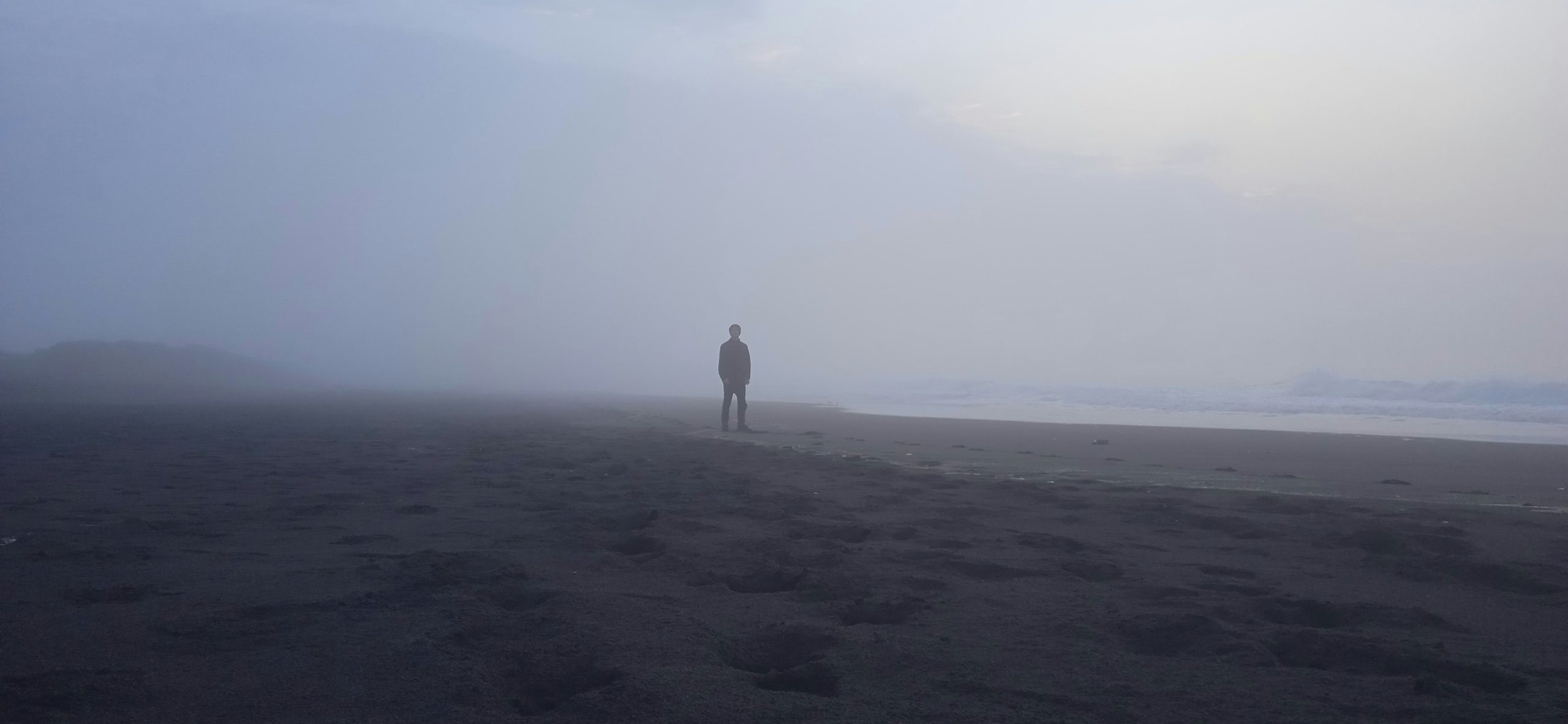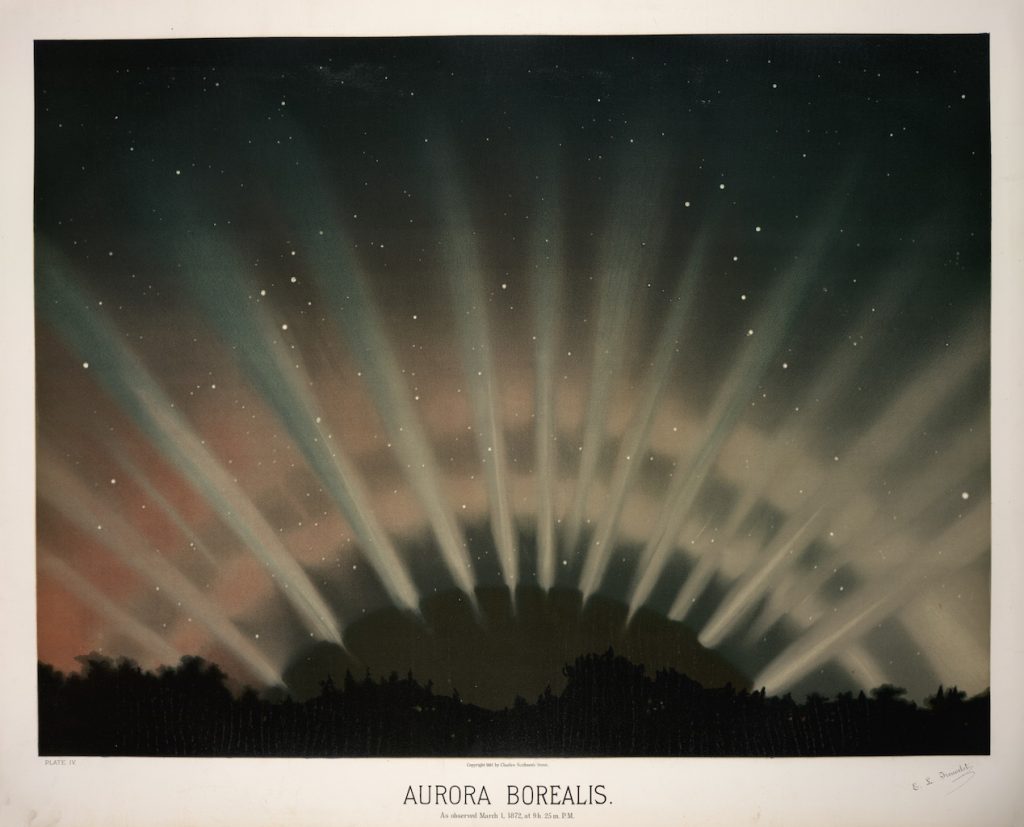Tragic Exiles and the Ache for Belonging
An excerpt from the forthcoming Ground: How Modernity Disconnected from the Earth, Why it Matters, & How to Fix It
As an exercise in awareness, I like to attempt to reach back into the heartspace and mindview of our earliest human ancestors, to attempt to place myself at the origin of our species in the Kalahari, two hundred thousand years ago. Because some of the culture of the Kalahari is still intact, this exercise is not as fanciful as it seems; we have experiential contact yet with this source culture.
What we think of as alienation is, functionally, an absence of belonging. In language, a lacuna or lexical gap is a hole in a language: the absence of a word or phrase where it could reasonably be expected to exist. In Japanese, for example, the word komorebi refers to the color of sunlight filtered through the leaves of the forest. In English, we cannot speak directly of this green-gold, as there is no word for it, despite the fact that this very color is the hue of our deepest ancestral dreaming: the primal homescreen.
Now that you know there is a word for it, you cannot unsee or unfeel this. This filtered forest light becomes its own thing: it accretes beingness by being named.
Ludwig Wittgenstein famously asserted in the Tractatus Logico-Philosophicus that language is essentially a net inside of which we live: The limits of my language mean the limits of my world. He believed that what is beyond language is not available to imagination.
Yet there is an embodied progenitor to linguistic absence, as language maps our experience. And the lacuna in experience, the hole in the fabric of the felt wrought by alienation, is beneath and before the holes in language, because what cannot be felt will never be known to be missing, and we will therefore never attempt to describe it.
Except that we have felt its absence as an ache since always.
We have felt this ache since Homer spoke The Odyssey, imbuing its titular protagonist with nostos—the longing for home—as his principal engine. It is an absence that pains us, not a simple void. It has gravitational force; it sucks at us inwardly. It is not simply an absence; it is a black hole.
We know, even without the language to identify it, even without the interoceptive vocabulary to point to it, that there is something fundamental missing. Something we have lost, or that has been thieved from us. All of our origin stories attempt to explain why we deserve this painful destiny; why we have been sired into the agony of this lack.
In an existence where we belong to the Universe, where we are part of it and viscerally experience our relatedness, our kinship with All There Is, we are woven together with all of Life. Through the lens of this sacred unity, nothing is alien, nothing is untethered. Through the ropes of relating, we have access to all the information in the universe: in-formation. Information is energy in formation.
Within this mode of belonging, there is no need for the kind of God that monotheism proposes, because God is experienced in everything, including us. This experience of belonging is down beneath language, beneath sensation. It is a visceral immersion in with. A music of which we are a part; within which we move.
What moderns call God is an artifact of our alienation. The name we give to the antidote to the empty place that sucks inwardly at us. Our idea of the Creator is confused: something benign yet not human, unfathomable, accessible possibly through altered states, mediated by trained initiates. It supposes that we are somewhere down here, and there is someone up there running things.
The hegemony of European rationalism, so-called, which rejects as irrational those things that cannot be explained scientifically—and therefore relegates religion to the realm of the antique—misses the point entirely. Religion expresses a yearning. It is right there in the etymology of the word. A yearning to be tied back to the creative wellspring, the Source (re-ligio). A yearning to have that aching void filled with what is supposed to be at the center of us, were it not this emptiness. What we call God—and assuredly our attempts to illustrate this, constrain it in human form, put a beard on it and paint it on a chapel ceiling are much deeper a reflection of the hall of mirrors of our own narcissism than anything approaching reality–arises from the felt intuition that we have been cut off from the wellspring of reality, and long for a relationship with it. The problem is that we’ve become consumed with what this looks like, and forgotten how it feels.
This yearning for God—and to be crystal clear, I heartily endorse as crucial both this yearning and its consummation—is the yearning not to be alienated. Not to be orphans of an uncaring universe, but children of belonging. The yearning for God, its essence, its distillate, is a yearning for belonging, in a cosmic sense—to feel part of the divine reality, the divine family, the eternal flux.
I’m driving toward the taproot of Supremacy, and it has brought me here: to this contemplation of the Divine, which is generally clothed in the poor cloth of our own minds, our own gaze, and our own thinking, and has been formalized over millennia into the varied yet static forms we are made aware of by religion.
Yet I direct my attention back, further, to tribal wanderings, to the Jews in the desert, ye brethren of mine, ye wandering tribes of Israel. The Old Testament God, to whom they entrusted worship, the tetragrammaton, is a God to whom they prayed for what? For a good harvest, for peaceful hearts, for a glimpse of the fabric of the real, for harmony in the home and hearth, for blessing.
And the common denominator of all these worthy prayers? Belonging.
Jesus has been as intentionally mistranslated as anyone in history. Yet of crucial import to this conversation, (I say this based on having studied, through books, the Aramaic language he spoke), is the fact that, contrary to both popular conception and established Church doctrine, Jesus did not say, “Pray to me.” He said, “Pray as I pray.” He was teaching people how to come back into relationship with the Cosmos. How to feel kinship.
This is not written in some book. Relatedness is not in a text or scripture, be it Torah or otherwise.
“Seek not the law in your scriptures, for the law is life, whereas the scripture is dead. I tell you truly, Moses received not his laws from God in writing, but through the living word. The law is living word of living God to living prophets for living men.
In everything that is life is the law written.You find it in the grass, in the tree, in the river, in the mountain, in the birds of heaven, in the fishes of the sea; but seek it chiefly in yourselves. For I tell you truly, all living things are nearer to God than the scripture which is without life.
God so made life and all living things that they might by the everlasting word teach the laws of the true God to man. God wrote not the laws in the pages of books, but in your heart and in your spirit. They are in your breath, your blood, your bone; in your flesh, your bowels, your eyes, your ears, and in every little part of your body. They are present in the air, in the water, in the earth, in the plants, in the sunbeams, in the depths and in the heights. They all speak to you that you may understand the tongue and the will of the living God.
But you shut your eyes that you may not see, and you shut your ears that you may not hear. I tell you truly, that the scripture is the work of man, but life and all its hosts are the work of our God. Wherefore do you not listen to the words of God which are written in His works? And wherefore do you study the dead scriptures which are the work of the hands of men?”
— The Essene Gospel of Peace
When, then, did we lose this experience of relatedness? When did we stop reading the book of life in the Living World, studying this living law, and why? When did we cut down the forest to build a church to enter into and worship?
Somewhere between the Original Fire tended by the Black Mother of Us All, the matrilineal line with the circle of the village organized around it, and the ritualized alienation of modernity, there are a series of denaturing catastrophes. What were they?
These catastrophes are stories of being cast out. A sequence of tragic exiles. A repetition of removal from kinship: damning blasts of expulsion. First from the garden of relatedness to all (Eden), then from relatedness with our human brothers and sisters.
NOTES:
The Essene Gospel of Peace can be found here.
The forthcoming book, Ground: How Modernity Disconnected from the Earth, Why it Matters, & How to Fix It is scheduled for release in hardcover December 15, 2025. Preorders are available here.








